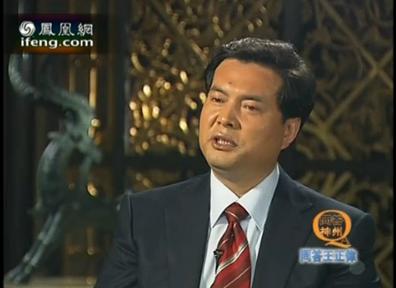| Islamic culture, a bygone glory revitalized in Ningxia | |||
|
|||
|
It has been hundreds of years since the camel caravans trudged on the various routes of the ancient Silk Road between Arabia and China. Lots of the Islamic travelers settled in the latter's territory and became what is now known as the "Hui". After experiencing many vicissitudes over the past hundreds of years, the two ends of the Silk Road recalled their glorious past by setting up the Sino-Arab Cooperation Forum during Chinese president Hu Jintao's visit to the League of Arab States in 2004. This has helped renew links between the two ancient worlds across the vast deserts lying between them. As the country's only Hui autonomous region, Ningxia hosted the first China-Arab Economic and Trade Forum in September 2010. The event drew many high-ranking officials from 22 Arabian countries to recall the common roots with their Chinese brethren. Three month later, Wu Xiaoli, the well-known Phoenix TV hostess, talked with Wang Zhengwei, chairman of the Ningxia Hui Autonomous Region, about the event. The following is the excerpt from the interview: Wu: How did you persuade the central government to select Ningxia to host the forum? Wang: So far as I'm concerned, Ningxia is the most suitable region to host the China-Arab Economic and Trade Forum. The ancestors of the Hui people were from Central and West Asia. The peoples are closely related by history and religion. Besides, the Sino-Arab relation has long been established since the opening of the Silk Road, with Ningxia as an important intermediate stop. These ancient exchanges provide a good basis for the two sides to revive the past glories. Now, the Hui people account for 36 percent of the total population in the autonomous region. A common religion means the Hui ethnic minority and the people of Arabia have many words in common. According to Wang, to successfully host the forum, the region was given a facelift, with millions of flowerpots arranged along the roads and numerous road signs rewritten in Arabic. Meanwhile, two hotels appointed to receive the guests were equipped with compasses to determine the direction of Mecca and the Qur'an. Wu: How many Arabian guests came to Ningxia? Wang: Over 1,000 came, including, three presidents, 38 ministers and vice ministers. They all showed their interest in the region. About 80 percent of them were first-time visitors. Wu: Was the forum the main attraction? Wang: Yes. The 22 countries from the League of Arab States all sent their representatives to Ningxia. The former Jordanian prime minister spoke highly of the forum, saying that it is as good as even it was held in Dubai. He encouraged us to keep on holding the forums. We are highly inspired by his words. Wu: You once said the preparation of the event created great pressure for you. So where did the pressure come from? Wang: We had never held such a big event. Neither had we imagined we would have attracted so many guests. We had only two five-star hotels in the region. But next year, we will build fiv e to six big hotels. As the market opens, there will be much investment. We would like to speed up our construction on infrastructure, including hotels. Wu: I've heard Ningxia was embarrassed to find it lack Arabic interpreters. Many Ningxia natives who can speak Arabic moved to Yiwu (a city in China's southeastern Zhejiang Province) to enter business there. So, the government had to go to Yiwu to find them and bring them back. Is that true? Wang: Yes. Yiwu has roughly 8,000 Arabic speakers. Among those people, 3,000 are from Ningxia. During the event, we needed many interpreters to help us to receive the guests. Some of them returned as volunteers while others were re-employed by local governments or companies. But those people are far from enough to satisfy the needs of such a big diplomatic event. So, we have encouraged our government officials and students to learn Arabic and English to meet the future need.
|
| Tools: Save | Print | E-mail |
|
| Comment |





